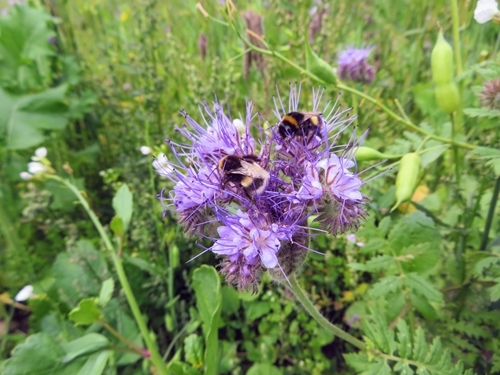
I started to write this blog when the Government’s approval for the emergency use of insecticidal seed-treatment Cruiser SB on sugar beet crops (see here for Government statement) caused the usual furore over the use of ‘bee-killing’ pesticides being allowed.
Let me be clear we do not disagree that neonicotinoids are a risk to bees; hence the need for the annual derogation process and the restrictions on their use, which were introduced in 2018. But as was made clear in an excellent Westminster Hall debate on 2nd February (definitely worth a listen if you have a couple of hours!), whilst concerns about impacts on pollinators should not be ignored, Government has to consider the issue from a broad viewpoint such as the potential impacts on food security from a declining home grown source of sugar and the consequences of exporting our environmental footprint to other countries through importing sugar beet or sugar cane.
Having listened to the Westminster Hall debate, I feel that it is important our commentary on this highly charged debate looks to the future and not the past by considering how we are going to balance the dual demands of domestic food production (in this case sugar beet) and on-farm biodiversity.
The Westminster Hall debate set the framework: all agreed that pollinators are vital to food production and sustainability and that it is imperative that we find alternatives to neonic and pesticide use. The Government has drawn a line in the sand for the sugar beet industry by stating that by 2023 it is hoped that it will no longer rely on neonicotinoids through developing alternative production strategies. Whilst this may involve developing resistant strains of sugar beet, it will also require greater use of Integrated Pest Management, a key focus for future UK pesticides policy, and this is where the GWCT can play a vital role.
GWCT work maximising natural pest-predator relationships through habitat provision could be used to create measures to aid farmers in combating Virus Yellow and Cabbage Stem Flea Beetle problems. For example, our work has shown that predators that fly are more effective at reducing the number of cereal aphids than ground-active ones and that if a long stubble is left when harvesting cereal crops, this provides spiders with the necessary structure for them to weave their webs and collect their prey of aphids! This one example demonstrates that it is likely to be a suite of measures that we will need to replace the use of pesticides and seed-treatments.
There is also the bigger picture of climate change and its effects on pollinators, with changes in flowering times (see recent research here), and other research showing that pollinators are also affected by air pollutants[1]. Given that declines in some pollinators are still occurring we need to understand how we can mitigate against these and support pollination services. Our BEESPOKE project may have some answers to this through looking at bee behaviour (Nectar-robbing bees blog). In addition, climate change may not be impacting the ‘global’ population of pollinators in this country; what is more likely is that it is changing the suite of pollinators that inhabit our ecosystems. Analysis of invertebrate data from our long-term Sussex study has shown that increasing pollinator and some predator numbers are associated with increases in temperature, while other plant-feeding insects show negative relationships with increasing temperature.
Luke Pollard MP, who led the Westminster Hall debate, acknowledged that banning neonics would not, on its own, reverse pollinator decline. It is important when considering pollinator health and diversity not to put all one’s policy eggs in one basket and just focus on neonics. There are possibly bigger and more worrying impacts out there - it is just that today we do not know the relative importance of these factors in pollinator decline.
Until we do know the answers to key questions (in this case around insect decline and recovery), stakeholders need to accept that few policy decisions are binary and that seeking to ban products or processes may have far-reaching unintended consequences. Like the Government’s approach to neonics, seeking to mitigate the downsides of an action or product and relying on thresholds for use is often better than an outright ban whilst alternative methods are developed to make the use of the risky product/process obsolete.
[1] Ryalls James M.W., Langford B, Mullinger Neil J. et al Anthropogenic air pollutants reduce insect-mediated pollination services, Environmental Pollution, Vol 297(2022) https://doi.org/10.1016/j.envpol.2022.118847.